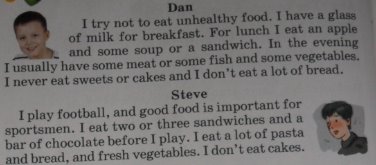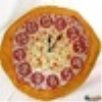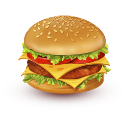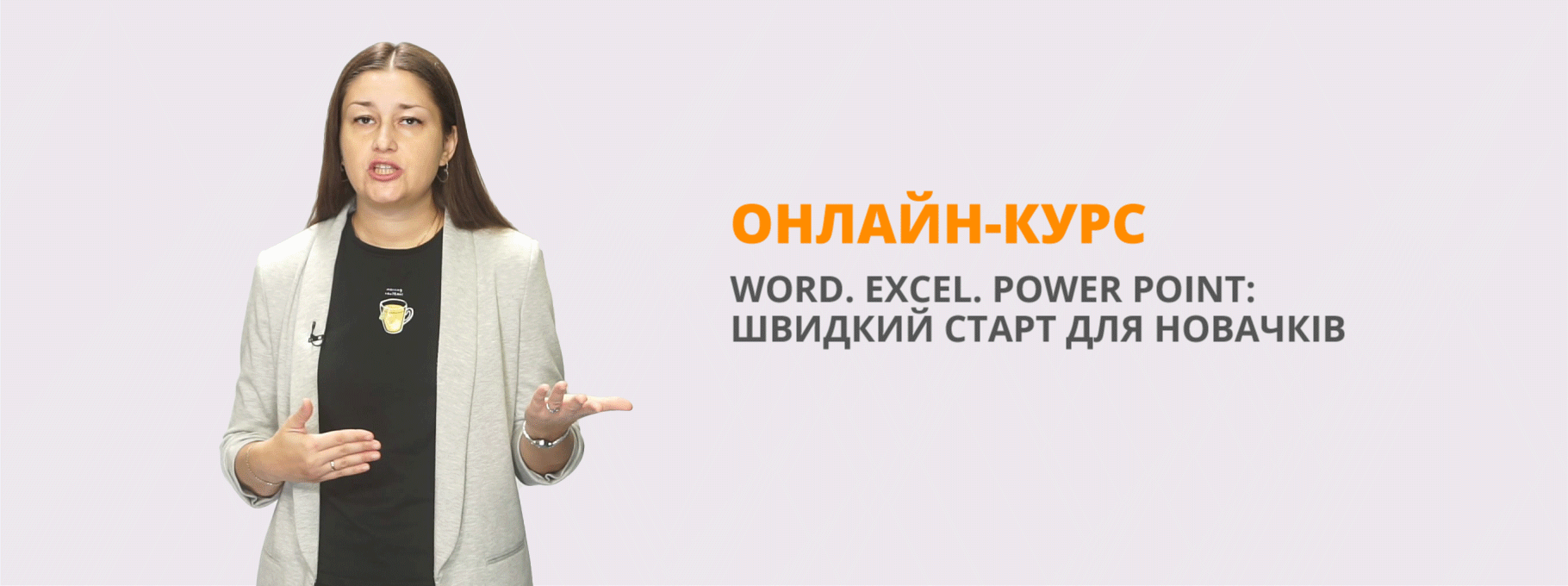Урок "My favourite meal" (Англійська мова)
Тема. My favourite meal
Мета: забезпечити опанування учнями нових лексичних одиниць та відпрацьовувати їх в усному та писемному мовленні; пояснити різницю між прислівниками much і many та відпрацьовувати їх вживання у вправах; активізувати та вдосконалювати вивчений лексичний матеріал з теми, відпрацьовувати його в усному мовленні; розвивати техніку читання, монологічне та діалогічне мовлення, фонетичні та лексичні навички, пам'ять, увагу, мислення учнів; виховувати культуру спілкування англійською мовою та культуру поведінки за столом, любов до англійської мови
Обладнання: презентація, тематичні малюнки, картки з новими словами, текст вірша, текст фізкультхвилинки, транскрипційний знак звуку [i:], індивідуальні картки, підручник, відеоматеріали
Тип уроку: комбінований
Тема. My favourite meal
Мета: забезпечити опанування учнями нових лексичних одиниць та відпрацьовувати їх в усному та писемному мовленні; пояснити різницю між прислівниками much і many та відпрацьовувати їх вживання у вправах; активізувати та вдосконалювати вивчений лексичний матеріал з теми, відпрацьовувати його в усному мовленні; розвивати техніку читання, монологічне та діалогічне мовлення, фонетичні та лексичні навички, пам'ять, увагу, мислення учнів; виховувати культуру спілкування англійською мовою та культуру поведінки за столом, любов до англійської мови
Обладнання: презентація, тематичні малюнки, картки з новими словами, текст вірша, текст фізкультхвилинки, транскрипційний знак звуку [i:], індивідуальні картки, підручник, відеоматеріали
Тип уроку: комбінований
Хід уроку
І Організаційна частина
1. Привітання
- Stand up, please!
- Good morning, children! Glad to see you! Sit down, please.
- Let`s listen and sing the “Hello Song”.
- But first let’s read the words of this song.
Hello, hello,
Hello, how are you?
I’m fine, I’m fine
I hope that you are too.
2.Представлення
- My name is Anastasia Vitaliуvna. I am a future teacher of English and I will conduct your English lesson today.
3. Повідомлення теми і мети уроку
- Children, look at the blackboard, you can see a lot of pictures. Guess what is the theme of our lesson.
( на дошці малюнки різноманітної їжі)
- You almost guessed. The theme of our lesson is “My favourite meal”.
- We are going to learn some new words on the theme, to read, and to speak. Also, you will learn to talk about meal and situations at the restaurant.
4. Фонетична зарядка
а) відпрацювання звука у словах
- Look at the card!
- This is the sound [i:].
- Let’s repeat all together.
- Let’s repeat the words with this sound: these, Pete, theme, key, cheese, cheap, sheep, meal
б) відпрацювання звука в римівці
- Listen to me very attentively:
Each Easter Eddie eats
eighty Easter eggs.
- Let’s read it line by line.
- Let’s read the whole rhyme.
- Listen to my translation:
Кожну Пасху Едді їсть вісімдесят великодніх яєць.
в) вправляння зі звуком ( Гра «Найуважніший»)
- Let’s play game.
- I say words. If you hear the sound [i:], you clap your hands. Rest of the time I want to hear only silence. Do you understand the rules of this game?
(Words: cheese, film, cheap, disk, sheep, eleven, thick, meal, day, they)
ІІ Основна частина
1.Мовленнєва зарядка
1.1 Повторення структури Present Simple
- Children, look at the screen.
- Let’s read the sentences.
You go to school every day.
You don’t go to school every day.
Do you go to school every day?
- В якому часі вжиті ці речення? (Present Simple – теперішній простий час)
- Які слова допомогли вам дізнатися про це?
- Яке допоміжне дієслово вживається у цьому часі?
- Як утворюється заперечне речення?
- Як утворюється питальне речення?
- Let’s read next sentences.
You went to school yesterday.
You didn’t go to school yesterday.
Did you go to school yesterday?
- В якому часі вжиті ці речення? (Past Simple – минулий неозначений час)
- Які слова допомогли вам дізнатися про це?
- Яке допоміжне дієслово вживається у цьому часі?
- Як утворюється заперечне речення?
- Як утворюється питальне речення?
1.2. Колективне виконання вправи
- Children, look at the screen.
- We don’t have some words in these sentences.
- Let’s fill in missing words.
We … (play) the piano yesterday. (played)
She … (do) her homework every day. (does)
… you play chess last week? (Did)
… he read books every month? (Does)
1.3. Самостійна робота учнів (виконання вправ на індивідуальних картках)
- Each of you gets a card. You must put words in brackets in the correct form.
I …………… (live) with my parents. (live)
We …………… (be) good friends. (are)
Paul …………….(have) breakfast at home. (has)
They .....................(go) to New York five years ago. (went)
I ...................... (work) two years ago. (worked)
She ....................... (study) French last year. (studied)
2. Пояснення вживання прислівників
2.1. Пояснювальна бесіда. Прийом «Мозковий штурм»
- And now look at the blackboard and listen to me attentively.
much fish
much butter
much salad
many tomatoes
many sandwiches
many apples
- Чому з цими продуктами я кажу much, а з цими many?
- Хто здогадався?
- Much використовується з незлічуваними іменниками , many — зі злічуваними. В англійській мові не можна порахувати мясу, рибу, напої, а також гроші.
2.2 Перевірка сприймання. Гра «У магазині»
- And now we are going to the shop. I need two buyers. One buyer buys food products with “many” and another one with “much” and put it into these pockets.
Onion, carrot, apple, banana, coffee, tea, oil
2.3. Відпрацювання питань How much / How many в усному мовленні
- Each of you gets a card. You must put in How much / How many in the sentences.
1. _________________lemonade have we got? We've got only one bottle.
2. _________________bottles are there? Three.
3. _________________meat is there? We have got two steaks.
4. _________________bananas have we got? We haven’t got any.
5. _________________sugar have we got?
6. _________________bread have we got? Some.
7. _________________money have we got? We haven’t got a lot.
8. _________________milk have we got? About one and a half litres.
- Let’s check your answers all together.
3. Етап читання. Робота з підручником
3.1. Словникова робота
- Children, open your books at page 98. And look at the blackboard, maybe you know these words.
try - намагатися
unhealthy - нездорова
important - важлива
 vegetarian – вегетаріанець
vegetarian – вегетаріанець
3.2. Читання текстів учнями
- And now read the texts by Dan and Steve without my help. Start reading.
3.3. Аудіювання тексту
- And now listen to me, I will read you a text by Kim. Shut your books. Be very attentive, because you will have some tasks.

3.4. Виконання вправи до прочитаного
- Each of you gets a card. I will read you sentences. If it is true, you will put the plus near the numbers of sentences, if it is false, you will put the minus.
1. Dan has a glass of milk for breakfast. (+)
2. Steve thinks that good food is important for sportsmen. (+)
3. Kim is not a vegetarian. (-)
4. Kim doesn’t eat lots of cheese. (-)
5. Steve doesn’t eat cakes. (+)
6. Dan usually has some meat or some fish. (+)
4. Фізкультхвилинка
- Lets sing the song “If you’re happy ”
If you're happy happy happy
clap your hands.
If you're happy happy happy
clap your hands.
If you're happy happy happy
clap your hands, clap your hands.
If you're happy happy happy
clap your hands.
If you're angry angry angry
stomp your feet.
If you're angry angry angry
stomp your feet.
If you're angry angry angry
stamp your feet, stamp your feet.
If you're angry angry angry
stamp your feet.
If you're scared scared scared
say, "Oh no!"
If you're scared scared scared
say, "Oh no!"
If you're scared scared scared
say, "Oh no!" Say, "Oh no!"
If you're scared scared scared
say, "Oh no!"
![]()
5. Відпрацювання фрази “I would like…”
5.1. Пояснювальна бесіда вчителя
- Look at the blackboard. Listen to me very attentively.
- Перекладаються ці фрази так.
- Спершу запитують: «Чи хочете ви…?», далі кажуть що саме.
- Якщо людина це хоче, вона відповідає «Так, будь ласка.», якщо вона цього не хоче, то вона відповідає «Ні, дякую.».
- Let’s repeat all together: Would you like…? Yes, please. / No, thanks.
- Would you like an apple?
- Would you like a banana?
- Would you like sandwiches?
6.2. Гра «У ресторані». Розвиток діалогічного мовлення.
- And now we will play the game. We will choose a pupil, who will be a cook in our restaurant.
- On the desk we have some meal. The cook answers one pupil if he would want something.
- The pupil looks at the picture. If there is a crossing in the picture, he says “No, thanks.”. If there isn’t a crossing, he says “Yes, please.”









ІІІ Заключна частина
1. Підсумок уроку
- What new phrases did we learn at our class? Let`s repeat the new phrases.
- Let`s repeat the rhyme.
- Let’s remember the new sound.
2 . Домашнє завдання з поясненням
- Your homework is ex. 3 (read and translate) and ex. 5 (write sentences in your copy-books).
3. Виставлення оцінок
-You are hard-working children. Thank you for your work. Your marks are: …
4. Прощання
- The lesson is over. Thank you! Goodbye, children!


про публікацію авторської розробки
Додати розробку
